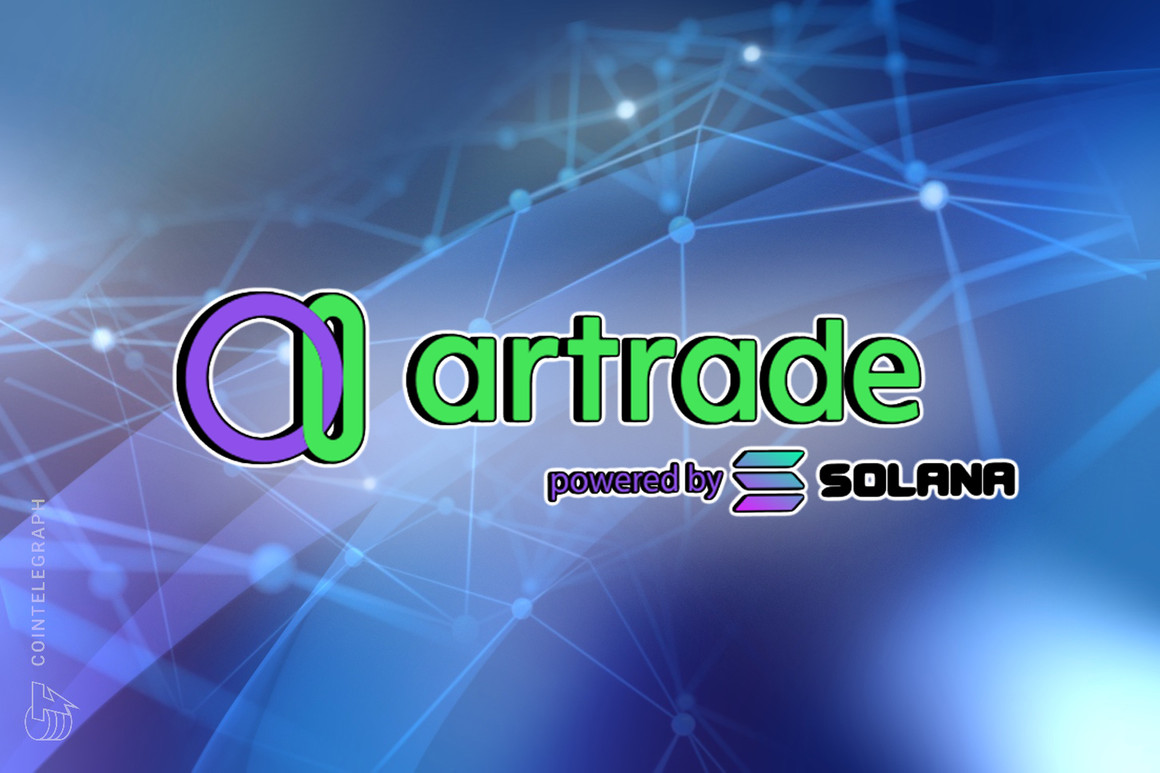
Artrade is creating the world’s first carbon-neutral, gasless, app-based NFT marketplace that solves the NFT carbon impact problem.
Nonfungible tokens (NFT) are one of the most explosively popular applications of blockchain technology to emerge in recent years. Leveraging immutable blockchain technology, NFTs allow artists to create digitally signed, wholly unique artwork with transferable ownership — without the need for a physical medium.
While the NFT economy may be completely digital, it still has a profound physical impact on the environment. The technology driving the NFT revolution is powered by blockchain networks that, in most cases, create a significant carbon footprint. Environmental and ethical concerns regarding the carbon cost of minting and trading NFTs have cast doubt over the sustainability of the NFT economy as a whole.
Artrade, the world’s first social NFT app, aims to address ethical concerns directed toward the NFT marketplace by creating the world’s first carbon-neutral, accessible and democratic NFT creation, sharing and trading platform. Artrade’s smartphone app-based NFT platform includes, among a broad spectrum of innovative features, a carbon-offset program designed to render the NFT ecosystem ethically and environmentally conscious.
Reforming the ethically questionable NFT marketplace
Blockchain technology and NFTs represent a new model of ownership for artists: Minting an NFT on a blockchain network such as Ethereum allows artists to provide art collectors and investors with the ability to purchase a unique piece of digital art. However, the technology used to create NFTs can have a significant environmental impact.
To mint an NFT, a creator must interact with a blockchain network. The transactions necessary to create or trade an NFT require a significant amount of energy. Ethereum and other blockchains commonly use a proof-of-work (PoW) consensus method to secure the blockchain and commit transactions, which requires specialized hardware with high energy consumption.
The average transaction on the Ethereum network, for example, incurs a carbon cost of about 73.6 pounds of CO2. Common interactions with NFTs, including creation, sale, purchase or transfer of ownership, require individual transactions. Independent investigations into the carbon cost of NFT transactions place the carbon impact of a single NFT trade at approximately 105.8 pounds.
With the number of active wallets trading NFTs numbering more than 300,000 in the fourth quarter of 2021, it’s easy to understand the concern about the ecological impact of the NFT marketplace. While some NFT marketplaces shift toward sustainable blockchain networks such as Solana, few offer a user-friendly, accessible interface ready for mainstream adoption.

How Artrade is establishing a charitable, eco-friendly framework for NFT trade
Artrade redefines how creators and investors interact with NFTs and blockchain networks by implementing features, partnerships, technological solutions and integrations that solve the most pressing issues of the contemporary NFT market.
Rather than build on the Ethereum network, Artrade leverages Solana blockchain technology to facilitate NFT minting, trading and storage. When compared to the Ethereum network, the Solana blockchain is far more efficient and environmentally friendly.
Unlike Ethereum, which operates on a PoW consensus algorithm, Solana uses a unique hybrid of proof of stake and proof of history. The average Solana transaction used to mint or trade an NFT incurs an energy cost of only 1,837 joules, with a financial cost of a fraction of a cent. Ethereum transactions, however, can cost hundreds of dollars for a single transaction and incur an energy cost of more than 690 million joules.
In addition to lowering the overall energy cost of minting and trading NFTs, Artrade has also partnered with ClimatePartner to ensure that all NFTs minted via the Artrade app are carbon offset. As a highly social, ethical platform, Artrade offers users the ability to donate to charitable causes via the Binance blockchain Charity Wallet.
The Artrade token fuels the NFT economy of the future
The Artrade token, ATR, is the native token of the ecosystem and is used in the creation and trade of NFTs on the platform. In addition to allowing users to participate in NFT auctions, ATR serves other purposes.
Artrade integrates a democratic, decentralized governance system allowing users to participate in the decision-making process that guides the future of the app, presenting the opportunity for additional ecological- and environmental-offset programs. Other features include a wallet system that provides users with ATR interest simply by holding their tokens in the app-based wallet without staking.
Artrade ATR tokens are currently available via the Artrade token sale, which is currently in the third round and will operate until Feb. 21, 2022. More information on the Artrade app and token sale can be found here:
New Artrade website: https://artrade.app/
Twitter: https://twitter.com/artradeapp
LinkedIn: https://www.linkedin.com/company/artrade-app
Telegram: https://t.me/ArtradeEnglish
Instagram: https://www.instagram.com/artrade.app/
This is a paid press release. Cointelegraph does not endorse and is not responsible for or liable for any content, accuracy, quality, advertising, products, or other materials on this page. Readers should do their own research before taking any actions related to the company. Cointelegraph is not responsible, directly or indirectly, for any damage or loss caused or alleged to be caused by or in connection with the use of or reliance on any content, goods, or services mentioned in the press release.
This news is republished from another source. You can check the original article here

Be the first to comment